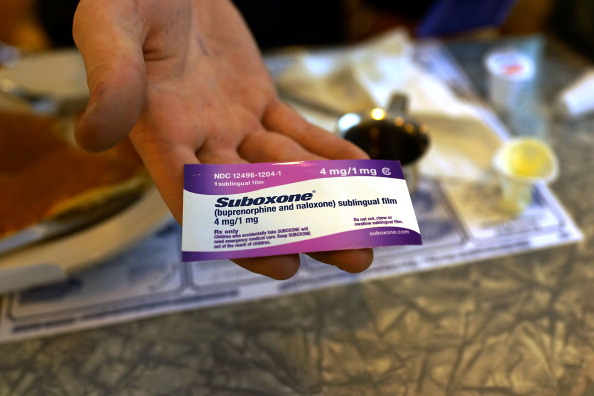Ohio attorney general sues pharmaceutical companies over opioid crisis


A free daily email with the biggest news stories of the day – and the best features from TheWeek.com
You are now subscribed
Your newsletter sign-up was successful
Ohio Attorney General Mike DeWine (R) filed a lawsuit Wednesday against five pharmaceutical companies, saying that by making users believe their opioid products were not addictive, they helped start the state's opioid epidemic.
The suit targets Purdue Pharma, Endo Health Solutions, Teva Pharmaceutical Industries and its subsidiary Cephalon, Johnson & Johnson and its subsidiary Janssen Pharmaceuticals, and Allergan. The lawsuit alleges that the companies violated Ohio's Consumer Sales Practices Act and created a "public nuisance by disseminating false and misleading statements about the risks and benefits of opioids." In a statement, DeWine said the state believes evidence will show that "these companies got thousands and thousands of Ohioans — our friends, our family members, our coworkers, our kids — addicted to opioid pain medications, which has all too often led to use of the cheaper alternatives of heroin and synthetic opioids. These drug manufacturers led prescribers to believe that opioids were not addictive, that addiction was an easy thing to overcome, or that addiction could actually be treated by taking even more opioids."
Ohio is seeking a declaration from the companies that they acted illegally, an injunction to stop "their continued deceptions and misrepresentations and to abate them the harm they have caused," and damages for money Ohio has spent on opioids and repayment to consumers who "like the state paid for unnecessary opioid prescriptions for chronic pain," ABC News reports. In 2015, 3,050 people died in Ohio from drug overdoses.
The Week
Escape your echo chamber. Get the facts behind the news, plus analysis from multiple perspectives.

Sign up for The Week's Free Newsletters
From our morning news briefing to a weekly Good News Newsletter, get the best of The Week delivered directly to your inbox.
From our morning news briefing to a weekly Good News Newsletter, get the best of The Week delivered directly to your inbox.
A free daily email with the biggest news stories of the day – and the best features from TheWeek.com
Catherine Garcia has worked as a senior writer at The Week since 2014. Her writing and reporting have appeared in Entertainment Weekly, The New York Times, Wirecutter, NBC News and "The Book of Jezebel," among others. She's a graduate of the University of Redlands and the Columbia University Graduate School of Journalism.
-
 6 of the world’s most accessible destinations
6 of the world’s most accessible destinationsThe Week Recommends Experience all of Berlin, Singapore and Sydney
-
 How the FCC’s ‘equal time’ rule works
How the FCC’s ‘equal time’ rule worksIn the Spotlight The law is at the heart of the Colbert-CBS conflict
-
 What is the endgame in the DHS shutdown?
What is the endgame in the DHS shutdown?Today’s Big Question Democrats want to rein in ICE’s immigration crackdown
-
 TikTok secures deal to remain in US
TikTok secures deal to remain in USSpeed Read ByteDance will form a US version of the popular video-sharing platform
-
 Unemployment rate ticks up amid fall job losses
Unemployment rate ticks up amid fall job lossesSpeed Read Data released by the Commerce Department indicates ‘one of the weakest American labor markets in years’
-
 US mints final penny after 232-year run
US mints final penny after 232-year runSpeed Read Production of the one-cent coin has ended
-
 Warner Bros. explores sale amid Paramount bids
Warner Bros. explores sale amid Paramount bidsSpeed Read The media giant, home to HBO and DC Studios, has received interest from multiple buying parties
-
 Gold tops $4K per ounce, signaling financial unease
Gold tops $4K per ounce, signaling financial uneaseSpeed Read Investors are worried about President Donald Trump’s trade war
-
 Electronic Arts to go private in record $55B deal
Electronic Arts to go private in record $55B dealspeed read The video game giant is behind ‘The Sims’ and ‘Madden NFL’
-
 New York court tosses Trump's $500M fraud fine
New York court tosses Trump's $500M fraud fineSpeed Read A divided appeals court threw out a hefty penalty against President Trump for fraudulently inflating his wealth
-
 Trump said to seek government stake in Intel
Trump said to seek government stake in IntelSpeed Read The president and Intel CEO Lip-Bu Tan reportedly discussed the proposal at a recent meeting
